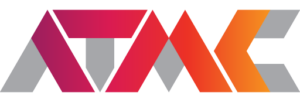DIPLOMA OF INFORMATION TECHNOLOGY (CYBERSECURITY) LEVEL 5
The Diploma of Information Technology (Cybersecurity) is a contemporary diploma developed in collaboration with industry experts and designed to equip students with a thorough understanding of the dynamic IT industry, with a focus on cybersecurity.
OVERVIEW
June, July, August,
September
1 Year
Global Academics and
Industry Professionals
Entry Requirements
Successful completion of Year 12 in Australia or equivalent in student’s country of origin.
If the student is using this qualification as a gateway program to International Universities, then they must qualify the academic requirements for the admission in that University.
English Requirements
Overall IELTS score of 5.5, with no individual band score below 5.0, or an equivalent English language test score
OR
Successful completion of an English Placement Test/Interview conducted by an ATMC internal or external representative
COURSE OUTLINE
The Diploma in Information Technology (Cybersecurity) is a comprehensive and advanced program designed to equip students with a broad understanding of the dynamic IT industry. Throughout this diploma course, students will delve into a diverse range of subjects, including software development, networking, cybersecurity, database design, and project management.
The curriculum is structured to provide students with hands-on practical experience, enabling them to apply their theoretical knowledge to real-world IT scenarios. Emphasis is placed on problem-solving, critical thinking, and effective communication skills, ensuring that graduates are well-prepared to address complex IT challenges in professional settings.
This qualification is for individuals in a variety of information and communications technology (ICT) roles who have established specialised skills in a technical ICT function. The skills required for advanced networking includes configuring and managing virtual computing environments and security within ICT networks.
CAREER OPPORTUNITIES
- Cybersecurity Analyst
- Network Administrator
- IT Project Coordinator
- Cloud Support Technician
- Infrastructure Support Analyst
- Systems Support Specialist
- Software Developer
- IT Support Specialist
- Devops Technician
- Network Security Officer
- Cloud Engineer
- IT Consultant
- Database Administrator
- Web Developer
- ICT Security Specialist
- DevRel Engineer
- Ethical Hacker
- Data Engineer
STUDY PLAN
- Foundations Of Team Leadership And Innovation
- Cybersecurity, Privacy, And Client Services Fundamenals
- Principles Of ICT Planning And Team Facilitation
- Principles of Cybersecurity Threats And Incident Response
- Foundations of Business Finance And Budgeting
- Basics of Programming And Project Management
- Principles of Network Security And Management
- Fundamentals of IT Disaster Recovery And Resilience
- Optimizing Workforce Performance And Client Service In ICT
- Basics of Security Architecture & Collaborative Technologies
STUDY PLAN
COURSES
| Foundations Of Team Leadership And Innovation | Basics of Programming And Project Management |
| Cybersecurity, Privacy, And Client Services Fundamentals | Principles of Network Security And Management |
| Principles Of ICT Planning And Team Facilitation | Fundamentals of IT Disaster Recovery And Resilience |
| Principles of Cybersecurity Threats And Incident Response | Optimizing Workforce Performance And Client Service In ICT |
| Foundations of Business Finance And Budgeting | Basics of Security Architecture & Collaborative Technologies |
Contact Hours
Contact hours can vary depending on requirements, however typical contact hours for full-time study are around 1200 hours comprising of classes, and self-directed study.
Course outcomes
- Develop Industry-Ready Technical Skills: Master core programming languages, database design, cybersecurity practices, and AI methodologies that are essential for today’s dynamic technology landscape.
- Harness AI & Automation: Gain the ability to design, implement, and evaluate AI-driven solutions to automate tasks and enhance data-driven decision making within organisations.
- Adopt Agile and Iterative Methodologies: Apply agile project management, rapid prototyping, and continuous feedback techniques to develop scalable, robust software solutions that address real-world business challenges.
- Integrate Strategic and Ethical ICT Practices: Learn how to align technology initiatives with business objectives, ensuring adherence to ethical standards, privacy requirements, and intellectual property considerations.
- Enhance Leadership and Collaboration: Build strong communication, collaboration, and leadership skills through hands-on, project-based learning—preparing you to lead interdisciplinary teams in solving complex problems.
- Foster an Innovative Mindset: Cultivate creativity, critical thinking, and adaptability, enabling you to generate innovative solutions that are sustainable and scalable for long-term organisational success.
Recognition of Prior Learning
International students wishing to apply for credit exemption are required to indicate on the application form that you they wish to be considered for credit exemption and provide a syllabus of their previous studies with their application for the course. Applications will then be assessed for eligibility for credit. Not all courses offer credit exemption.
Additional information
To help you get the most from your online learning experience, it’s important that you own or have frequent access to a fast and reliable computer that’s ideally not more than two years old.
You will also need frequent access to a reliable high-speed internet connection. You should expect to use approximately 5GB of data each month, per unit, just for study use.
